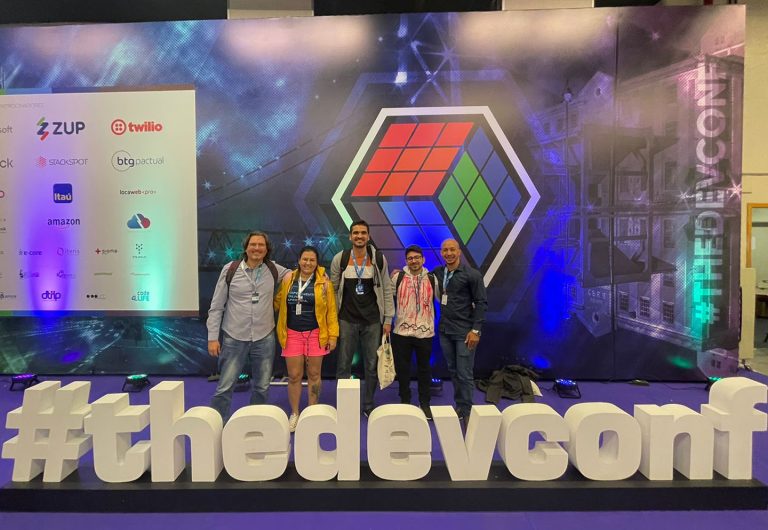The Developers Conference demonstrates how all technology events are FOSS events – it

For fifteen years, The Developers Conference has taken place in several locations in Brazil. Of course, during the Covid-19 outbreak, like several other conferences, TDC (as it is called by its participants), became a virtual event. Returning in August, 2022 to an in-person format in Sao Paulo, TDC Business Edition, was the biggest event yet. I had the honor to participate.
Returning to an in-person format doesn’t mean at all that the virtual conference will go away. In fact, the opposite is occuring. As Yara Mascarenhas, founder and CEO of The Developers Conference, says:
“We believe that the Digital Transformation is not an uncomfortable cloth that we want to take out as soon as arriving home, but a comfy cloth that we feel comfortable keeping. We strongly believe that the hybrid format event is the future!”
I really can’t remember how many editions of TDC I participated in, even before joining the Linux Professional Institute. There were really a lot of them. I do recall, however, that after I joined LPI as an executive, we started to support the event. It was a place where we could talk about free and open source software and spread our mission–to promote the use of open source by supporting the people who work with it–to a broader audience.
Although we formally support the Devops and the Web Front End tracks, I usually sample the other tracks to check out what people are talking about. Partaking of many aspects of TDC this year, I realized more and more that every technology event is, nowadays, about free and open source technologies.
This realization brought back to my mind something Mike Cohn wrote for InfoQ, more than ten years ago:
I’d like agile to reach this same point, where we no longer need to talk about it. Rather than “agile software development” it is just “software development–and of course it’s agile. No one asks me if the Ruby code I’m writing these days is OO. Of course it is. I hope someday no one has to ask if I used agile on the project. Of course I did.
In a similar analogy, it seems to me that free and open source software will soon be called, well, just “software.” The Developer’s Conference has realized that and now invites every event participant (speakers, organizers, sponsors, and all sorts of collaborators) to think of the need for all sorts of knowledge to be free.
Along with several “show-me-the-code” style talks, there are an equivalent amount of talks in the “show-me-exactly-how-you-did-it” style. The range of themes varied:”How I got the job I have”
“How I got promoted”
“How to have people mesmerized by your talk”
All the way to “How I really scaled up my app”
And also “How I failed miserably”
And I must tell you that a “face-to-face” event is still way, way better than the virtual ones. The energy is just different, and the random effect of unexpected encounters is amazing–for me, one led to reviving a childhood friendship!
TDC invests a lot of time and effort in careers and mentorship talks, workshops, and one-on-one sessions. The organizers never forget to consider diversity and inclusion. It was, after all, at one of the 2019th editions of TDC that I got to know the educaTRANSforma project, which LPI has been supporting since then in its mission to prepare transgender and nonbinary people for a career in compting. It was a pleasure there to find Victoria Corotto, first educaTRANSforma student, working for one of the biggest companies supporting TDC, Unico, which is also a big FOSS user and contributor.
LPI thanks The Developers Conference for our growing partnership, and we look forward to being present in all its future editions.
Keep an eye out for the first edition of The Developers Conference in Spanish and submit your talk!
